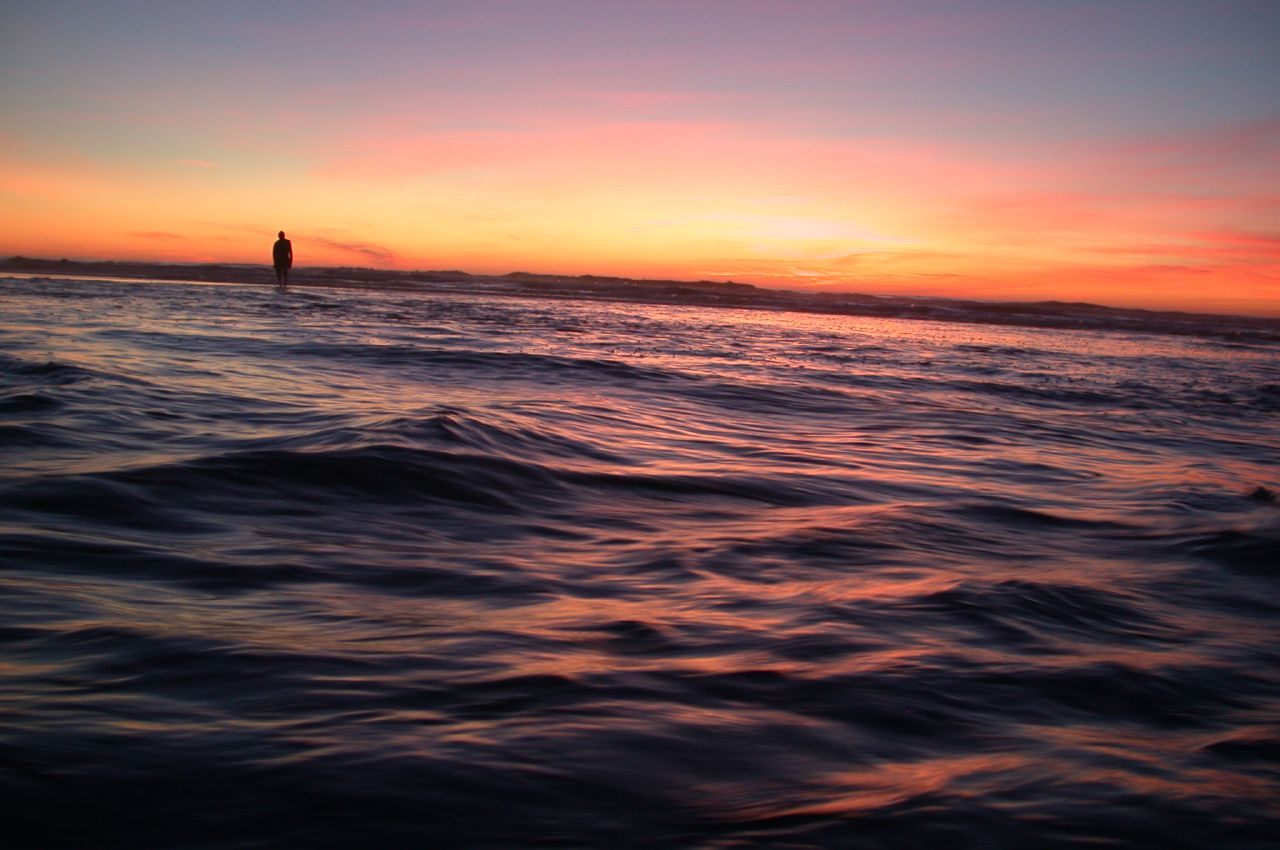How To Walk On Water, Without Being the Son of God

Walking on water is a lot easier than one might think. (Image: Kevin Krejki on Flickr)
One of the most famous and enduring miracles of all time comes from (who else) Jesus Christ—the epic feat of walking over water. In fact, the phrase “walking on water” is basically a synonym for miracle.
But while he might be the most famous miracle worker of all time, he is far from the last person to pull off this classic stunt.
First, there’s the people who’ve engineered ways to literally walk on water, using pontoon-like shoes and skis, and it has worked. Maybe the most famous example of this feat being Remy Bricka’s “walk” across the Atlantic Ocean in 1988. But the actual act of standing on or moving across the surface of a body of water, like Jesus did, seems a bit tougher. According to an article on LiveScience, over 1,200 species have the ability to walk on water either by being ultra-light like bug, or being fast, like the web-footed basilisk lizard.
The average human would have to run at about 67 miles per hour to keep from sinking below the surface of the water, so unless Jesus was as fast as a cheetah, it’s easy to see why his fabled floating seems heaven sent.
But the truth is that, with a little trickery, humans can “walk on water” pretty easily. In fact just about anybody can pull off this trick with a little planning and a showman’s spirit. At the risk of spoiling the magic of a miracle, here are three ways to walk on water.
1. USE CLEVER ANGLES
This is, in some ways, the easiest way to pull off the illusion of walking on water, but its simplicity is also what makes it so hard to sell. Performing the trick in this manner is all about location. You’ll need to find a super shallow body of water like the edges of a pond, or a wide puddle, no more than an inch or so deep. If you can, find a strip of higher land that extends out into deeper water. Get the audience for the stunt to stand a bit away, and ideally, from a lower vantage point. From there they won’t be able to see beneath the surface, or more importantly, judge how deep the water is. From the right angle the surface of a rain puddle can look as deep as a lake, and standing on it can look like a miracle.

Nice trick, Jesus. (Image: Wikipedia)
It has been posited that this is essentially how Jesus walked on the Sea of Galilee. Mounds of ancient stones have been uncovered in one of the places where researchers think the miracle may have been performed, and they may have acted as a platform for his holy crossing. From the vantage point of his followers that supposedly saw Christ walk across a stormy sea and get in their boat, it would have appeared that he was floating on the surface, when he was just standing on stones just under the waterline.
2. BUILD A SECRET PLATFORM
So what if your audience is all around and has every vantage point? No storms or flattering angles to hide your miracle works? Well, thanks to more modern materials than Jesus had at his disposal, a good answer to those questions is to build a clear fiberglass platform. This is maybe the ideal version of this trick since, when it is totally submerged, a glass or clear plastic platform is essentially invisible. This would be harder to pull off in a natural setting where the slope and level of the ground is more varied and harder to gage, but in smooth, man-made waters like swimming pools, it works perfectly.
While magicians and illusionists are obviously tight lipped about how they pull off their miraculous feats, many skeptics and debunkers assume that this is how the feat of walking on water is performed by modern showmen. One of the most famous examples of a walking on water act was in 2011 when English magician, Dynamo stepped out onto the waters of the Thames in plain view of countless onlookers. After making to the end of his assumed platform, he was pulled into a police boat, which was likely a part of the trick meant to prove that the waters were still deep and navigable, although the ship never crossed Dynamo’s path on the water.
In another instance of the trick, Criss Angel, professional Mindfreak, walks across the top of the pool, while “wowed” swimmers pass beneath him. This version of the trick is impressive and could only really have been performed using a clear construction with paths beneath the upper platform. This method was even used as a joke in an episode of Arrested Development. It’s a little more expensive, but building your own clear platform might be the most miraculous way to walk on water.
3. SCIENCE
As ever, science can also provide an answer to this miracle, thanks to non-Newtonian fluids. A non-Newtonian fluid is a substance that has a variable shear rate, allowing for the surface of the fluid to act as a solid for brief amounts of time. In lay terms, it is a thick liquid that can be walked across without sinking, so long as one doesn’t stop moving. The surface may ripple and deform but it will not break (or shear) unless a sustained pressure is put on it, because impact actually makes it thicken for a short time.
There are a number of types of non-Newtonian fluids, many of them chemically created, but probably the most common variety is a goop you can make in your kitchen called “ooblek.” Named after the Dr. Seuss book, Bartholomew and the Oobleck, it is nothing more than an ooze made from cornstarch and water. For anyone playing along at home, the recipe is essentially 1 part water + 1.5 parts cornstarch. The resulting slurry is a thick opaque slime that probably isn’t going to fool anyone into thinking it’s water, so you probably isn’t going to start you any religions. However, technically, it is water that can be walked on (or slapped, punched, and otherwise fiddled with) pretty damn miraculously. Unfortunately most people are not going to have the massive amounts of starch required to create a large pool of ooblek, it is not impossible to obtain. (Check out the Mythbusters using their massive resources to prove that you can in fact create a giant vat of the stuff.)
In summary, walking on water is not out of the realm of possibilities for anyone, even you. Stop waiting for a miracle to happen, and get out there to make your own!









Follow us on Twitter to get the latest on the world's hidden wonders.
Like us on Facebook to get the latest on the world's hidden wonders.
Follow us on Twitter Like us on Facebook